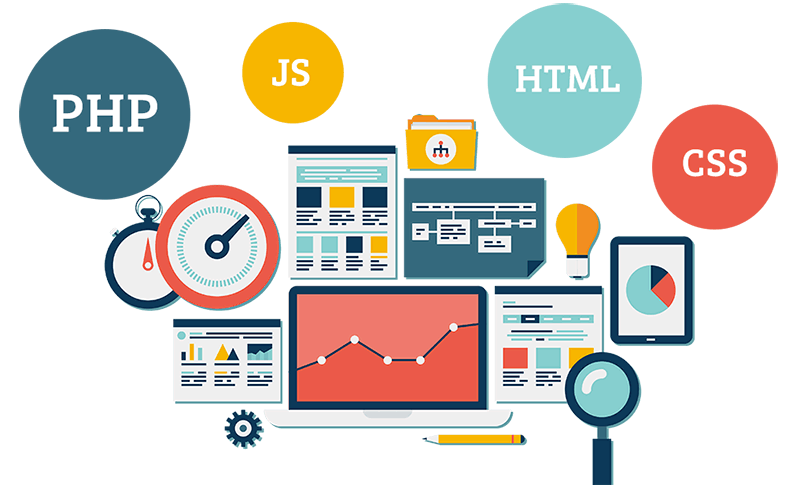Effective financial management is a cornerstone of business success, and the right finance management software can be a game-changer. This article explores the top features to consider when selecting finance management software and highlights the myriad benefits of streamlining financial processes for your business.

Key Features to Look for in Finance Management Software
1. Accounting and Bookkeeping:
- General ledger to track all financial transactions.
- Organized chart of accounts for income, expenses, and assets.
- Double-entry accounting for accuracy.
2. Invoicing and Billing:
- Professional invoice creation and automation.
- Recurring invoice automation.
- Payment tracking and reminders.
- Estimate and quote generation.
3. Expense Management:
- Record and categorize expenses.
- Digital receipt capture.
- Expense policies and approvals.
- Trend and pattern monitoring.
4. Budgeting and Forecasting:
- Department or project-specific budget creation.
- Real-time tracking of budget vs. actual performance.
- Future revenue and expense forecasting.
5. Bank Reconciliation:
- Seamless synchronization with bank accounts.
- Discrepancy detection and resolution.
6. Financial Reporting:
- Generation of balance sheets, income statements, and cash flow statements.
- Customizable reports tailored to specific needs.
7. Payroll Management:
- Calculation and processing of employee salaries.
- Tax handling and compliance.
- Employee record maintenance.
8. Tax Management:
- Automated tax calculations and deductions.
- Generation of tax forms and reports.
- Stay informed about tax law changes.
9. Multi-Currency Support:
- Transaction management in different currencies.
- Automatic exchange rate updates.
10. Integration with Other Software:
- Seamless integration with CRM, ERP, and other business software.
- Data synchronization across platforms.
11. Security and Compliance:
- Data encryption and secure access controls.
- Adherence to financial regulations and standards.
12. Collaboration and User Roles:
- Different access levels for team members based on roles.
- Collaboration features for financial tasks and approvals.
13. Cloud-Based Access:
- Access financial data from anywhere with an internet connection.
- Data backup and disaster recovery.
14. Mobile Accessibility:
- Mobile apps for managing finances on the go.
15. Automation and Workflows:
- Automated routine financial tasks and workflows.
- Rule and trigger setup for specific actions.
16. Scalability:
- Software that grows with your business.
17. Customer Support:
- Access to reliable customer support for troubleshooting.
18. User-Friendly Interface:
- Intuitive design for non-financial experts.
19. Data Analytics:
- Use of analytics tools for insights into financial performance.
20. Third-Party App Integrations:
- Connection with third-party apps like payment gateways and e-commerce platforms.
Benefits of Streamlining Business Finances
- Improved Financial Visibility:
- Better insight into your business’s financial health.
- Time and Cost Savings:
- Reduced manual effort and associated costs.
- Enhanced Accuracy:
- Minimized chances of errors for compliance and decision-making.
- Better Cash Flow Management:
- Efficient invoicing, collections, and payment schedules.
- Increased Productivity:
- Staff freed up for strategic activities.
- Compliance and Risk Management:
- Mitigated risks of penalties and legal issues.
- Data Security:
- Enhanced protection of sensitive financial information.
- Scalability:
- Easily manage growing volumes of transactions.
- Strategic Decision-Making:
- Informed planning based on accurate and timely data.
- Customer and Vendor Relationships:
- Prompt invoicing and payments for positive relationships.
- Reduced Stress:
- Clear and organized financial systems alleviate stress.
- Competitive Advantage:
- Lower overhead costs and strategic resource allocation.
- Easier Audits and Due Diligence:
- Smooth and efficient processes for audits and due diligence.
- Business Continuity:
- Quick assessment of financial situation in times of crisis.
- Sustainability:
- Reduction in waste and enhanced environmental sustainability.
Conclusion:
Selecting the right finance management software is pivotal for businesses aiming to enhance efficiency, reduce costs, and improve overall financial health. By incorporating these features and embracing streamlined financial processes, businesses can position themselves for growth, strategic decision-making, and sustained success. To explore Finance Management Systems further, click here.





